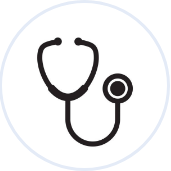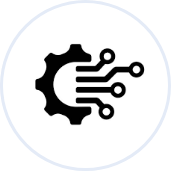The dreaded annual check-up. While some patients opt for only going to see a doctor when they’re feeling ill, a new study by Northwestern Medicine found that routine check-up visits benefit all patient populations, especially at-risk ones.
Although some patients feel anxious when walking into their doctor’s office, annual check-ups have been successful in detecting increased chronic disease risk and leading to increased vaccination and disease screening rates.
Here are three reasons why routine visits to your doctor can help your health.

What is a Routine Check-Up Visit?
An annual check-up, also referred to as a routine check-up or a general health check, is an overall health screening used to assess a patient’s current health as well as future health risks.
During this time, patients can ask their Primary Care Physician (PCP) questions about current or future needs or let their doctor know of any symptoms they are experiencing.
Appointments can last between 20 to 45 minutes and include tests such as bloodwork or screening, depending on the patient and their needs.

More than Sickness
Patients who only go to the doctor when sick may not get the necessary testing to look for other ailments or symptoms, especially for at-risk populations. Visiting the doctor when there is a problem does not leave time for more discussions about risk factors or available vaccines.
Attending annual check-up visits may help to prevent more frequent visits for sickness and symptoms by addressing health issues before they arise.

The Future of Check-Up Visits
As more technological advancements are made in the healthcare industry, how annual check-up visits are conducted will also change. Healthcare facilities are already implementing electronic patient records and online health portals to make access and data organization easier for them and the patient.
Talking to a doctor became more accessible during the Covid-19 pandemic through telehealth services, allowing patients to attend virtual check-ups. After the initial check-up, patients can visit their PCP in person for any further conversations or testing.
Artificial Intelligence (AI) has also made its way into healthcare as a tool for gathering and analyzing data. This technology assists doctors when making a diagnosis and helps them decide the best course of action for that patient after your routine check-up visit.
Routine check-ups play an important role in overall health and well-being. They act as a net to catch some health issues before they arise and help you better understand and manage your overall health. While they are not a solution to every problem, they can help you ensure your health is where you want it to be and take the necessary steps toward a healthier life.
By Kaitlyn Carney





